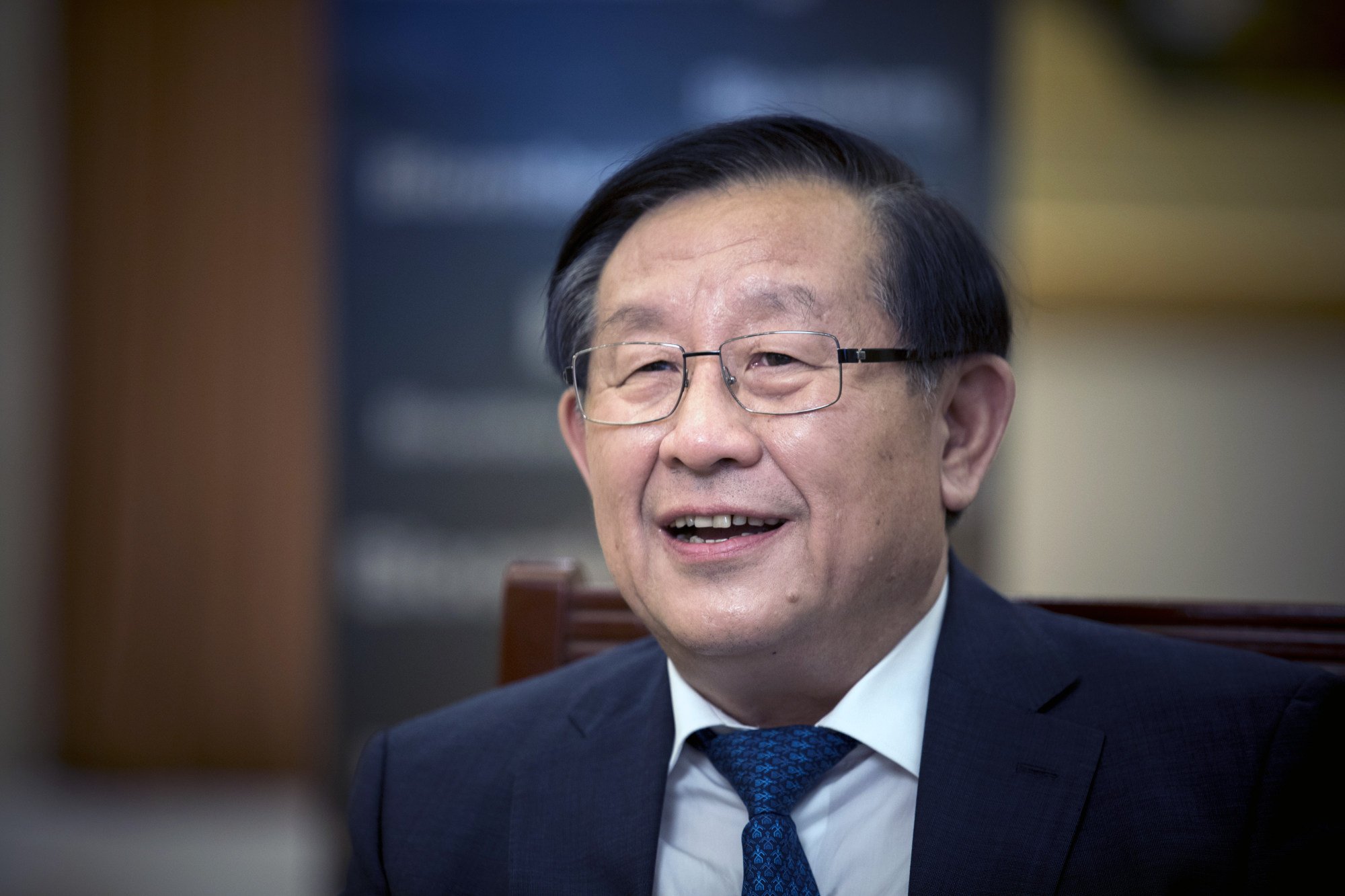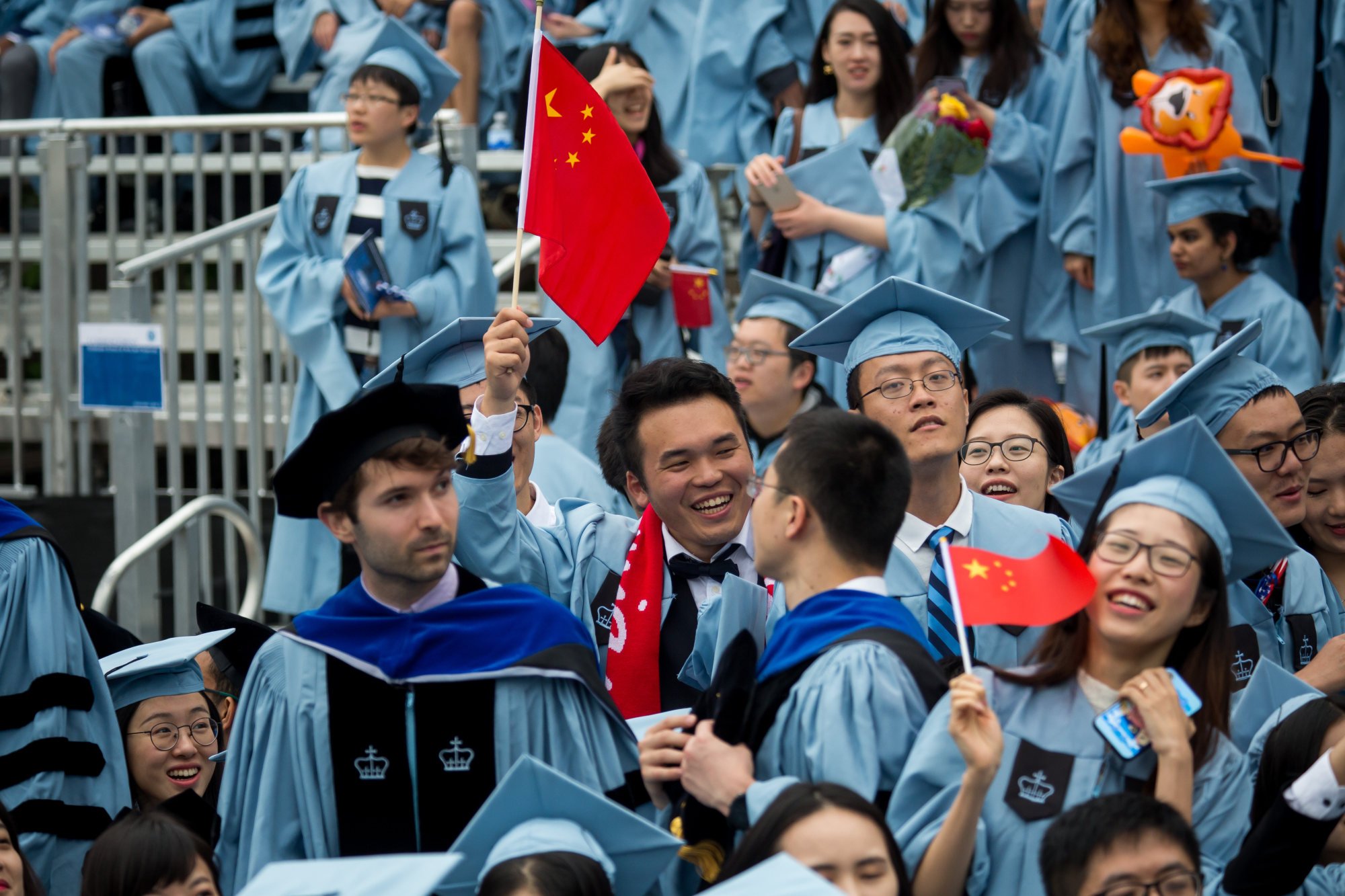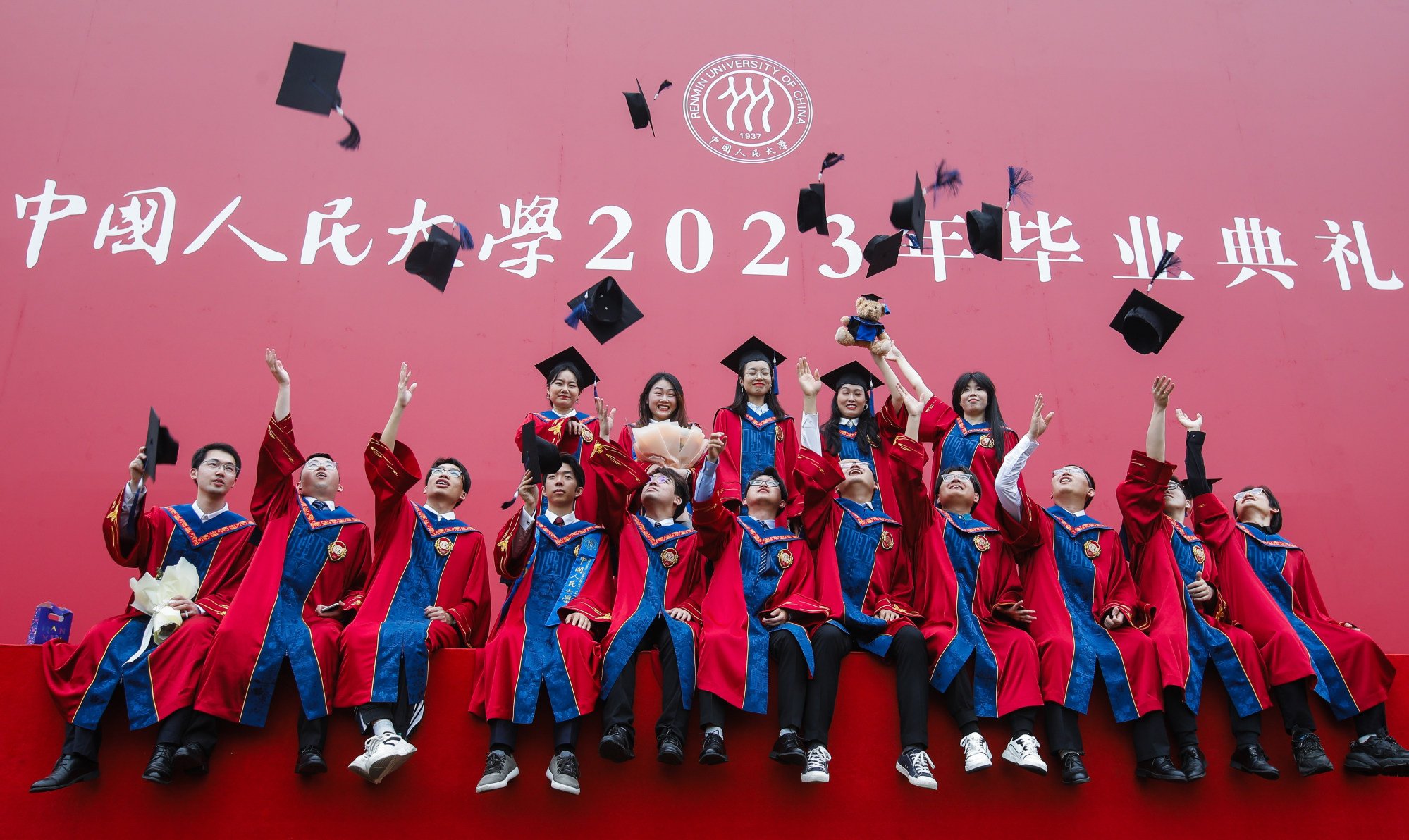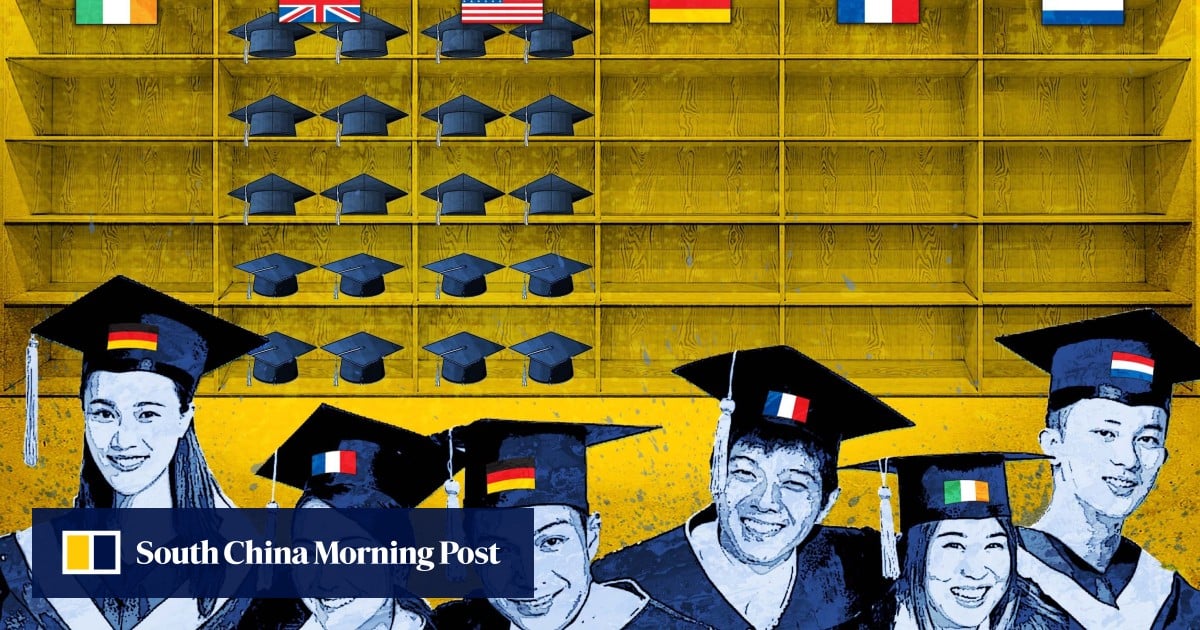Students have been travelling to Europe for generations, reflecting the idea that learning from the West could help China’s modernisation.
Earlier generations of Communist Party leaders, like Zhou Enlai, made short study trips to Japan, Germany, France and Britain in the 1920s; Deng Xiaoping also spent five years in France when he was a teenager.
For example, Wan Gang, “the father of China’s electric vehicles”, studied at the Technical University of Clausthal in Germany in 1985 after gaining a master’s degree from Tongji University.
In 1991 he got his doctorate and then worked for automotive giant Audi for years. He returned to China and became the president of Tongji University in 2004, going on to be appointed minister of science and technology three years later.
Over two decades ago, Wan persuaded China’s leaders to develop the then-untested technology of vehicle electrification.
Can Hong Kong’s top universities attract overseas students, scholars?
Can Hong Kong’s top universities attract overseas students, scholars?
Buoyed by his strategy of providing government subsidies to carmakers and consumers, today, over half of the EVs sold around the world are in China.
Similarly, in 1984, Chen Zhu began his studies in France, getting his PhD from the Saint-Louis Hospital Blood Centre Laboratory at Paris Diderot University. In 2007, he became health minister.
Chen and Wan were the only two non-Communist Party members serving as ministers at that time.

Two decades on, the landscape in China has changed dramatically. It is now a world leader in fields spanning advanced manufacturing, engineering, computer sciences and life sciences.
Growing popularity
“We have not yet finalised the statistics for 2023 of how many students went to European countries, for we lack the official data from embassies,” said Eva, a practitioner responsible for European study programmes at a well-known overseas study agency in China. She declined to use her name as she was not authorised to speak to the media.
“But our preliminary estimate is that it will definitely exceed pre-pandemic levels – the peak in 2019.
Number of Americans studying in mainland China falls sharply
Number of Americans studying in mainland China falls sharply
In the Netherlands, China has been the only non-European Economic Area country in the top 10 source countries since 2021-2022, coming in at fourth place. In 2022-23, there were 5,610 students from China, up 5.3 per cent, according to official data.
And according to state-owned China Daily in March, 12,571 Chinese students enrolled in higher education programmes in Spain in 2020, nearly double the number from 2015.
In Germany, according to the data provided by the German Academic Exchange Service (DAAD), over the past 10 years, students from China have been an important part of the nation’s international students.
Numbers of Chinese students have far exceeded those from other countries, with about half of them choosing to study engineering-related subjects there.
And although for the 2022 winter semester the numbers of students from India have outnumbered those from China for the first time in over 20 years, the gap is negligible.
Meanwhile, in France – and despite a 2 per cent fall in the number of international students from China registered for the 2021-22 academic year – China still ranked third among major source nations.
Eva said one major reason putting students off going to France was the strict visa policies for Chinese students intending to apply for free programmes taught in French, though in fact, there was a noticeable increase in the courses in English.
She suggested that the latest data from Germany and France reflected more of a temporary fluctuation and more time was needed to see if it was a trend.
China’s tutoring ban meant to ease stress, costs but has worsened education gap
China’s tutoring ban meant to ease stress, costs but has worsened education gap
Unique advantages
But compared to the most appealing countries for students, such as the US and Britain, many European countries had their own particular advantages in academic disciplines as well as other unique features, Eva said.
For example, Germany is renowned for its mechanical and electronic engineering programmes, while France leads globally in mathematics and art education, and Hungary is famous for its comprehensive medical courses.
Among the programmes taught in English in this region, those in Ireland were the most popular, she said, as the employment rate for international and local graduates was exceptionally high.
This is a significant advantage for Chinese students facing intense competition in the domestic job market.

Thanks to low taxes, geographical privileges, a young pool of hi-tech talent and a robust industry chain, Ireland is an international hub for the biomanufacturing industry, home to more than 85 multinational biopharmaceutical companies and over 300 local medical technology companies, which offer many job prospects.
But another factor boosting their intake of Chinese students is probably the deteriorating relationship between Beijing and Washington.
Eva said she did not have specific data but one applicant, for example, was applying to ETH Zurich in Switzerland because there were problems obtaining US visas for his major.
Why China’s vocational school drive is causing ‘strong anxiety among parents’
Why China’s vocational school drive is causing ‘strong anxiety among parents’
Visa policies as well as friendly environments are expected to become increasingly important factors for Chinese students when deciding where to study abroad, according to the “Annual Report on the Development of Chinese Students Studying Abroad (2022)”, a blue book jointly compiled by the Beijing-based think tank Centre for China and Globalisation and the Bank of China last year.
“There is a possibility of a shift in study demand towards Europe and Asia,” the report said. “France and Germany are gradually introducing favourable policies for Chinese international students, indicating great potential for overseas study and exchanges.”
On top of that, more Chinese households are struggling as the economy slows, prompting them to consider less expensive options for their children’s education and their family’s immigration plan.
In that respect, European countries stand out when compared to places like the US and Canada, according to Eva.

Barriers to admission
Germany recently announced that it has overtaken Australia in the list of the most popular study destinations and now ranks third worldwide, securing the first spot among non-English-speaking countries.
In 2020, a survey on German language learning data showed rapid growth in the number of Chinese learners of German. In Chinese secondary schools, the number of students learning German has almost doubled in the past five years.
However, getting admission to European academic institutions was not easy, Eva said. She interviewed several students studying in France and found that those who were able to enrol in prestigious French schools had outstanding proficiency in French, high IELTS (International English Language Testing System) scores and GPAs.
Generally, the brightest students, such as those graduating from Tsinghua University and Peking University, who want to study abroad are still largely heading to the best-known institutions in the US – such as its Ivy League universities – as well as Britain.
How will US fare as Indian students overtake Chinese in hi-tech talent pool?
How will US fare as Indian students overtake Chinese in hi-tech talent pool?
“However, students who can attend German colleges are outstanding as well because the graduation requirements there are very strict,” said Wu Huiping, deputy director of the German Research Centre at the Tongji University in Shanghai. She obtained her PhD in Germany around 20 years ago.
Chinese families were no longer as enthusiastic about studying abroad as they were two decades ago, Wu said, but for nations like Germany, its high-quality education system – especially in engineering-related majors – international campuses and very low tuition fees, remained very attractive.
Wu said that to attract the “smartest minds”, German higher education institutions, which used to to be relatively independent, began about two decades ago to actively take part in several major international rankings to become more competitive.
In some highly ranked German universities, Chinese students were visible everywhere, she said.
Shifting policies
“Besides competitors and collaborators, Germany is increasingly viewing China as a systemic adversary,” Wu said.
She said Sino-German scientific cooperation was in an adjustment phase but talent flow and academic exchanges continued.
Germany’s DAAD said: “Germany has always been open to Chinese students and all international students.
“In 2019, we laid down the latest policy that Chinese students can directly apply for bachelor’s programmes at German universities with their scores from China’s National Higher Education Entrance Exam, which to a large extent lowers the age for studying abroad in Germany.”
In a joint announcement with Germany’s Ministry of Education and Research in November, DAAD launched a pair of initiatives to boost the retention of foreign graduates of German universities and to attract foreign degree holders to live and work in the country.
“After all, we urgently need more bright minds and hard-working hands for growth and prosperity in our country,” Education Minister Bettina Stark-Watzinger said.
China ramps up national security studies amid ‘unprecedented’ external threats
China ramps up national security studies amid ‘unprecedented’ external threats
However, many Chinese students still go to Europe, keen to broaden their horizons and enrich their experience and educational background.
“We need scientific collaboration now more than ever before. Only by working together can we solve the major problems of mankind,” Klaus Birk, a director of DAAD, said.
“The best way for us to develop together is for us to enable young people to communicate with each other in order to find solutions to international problems.”




